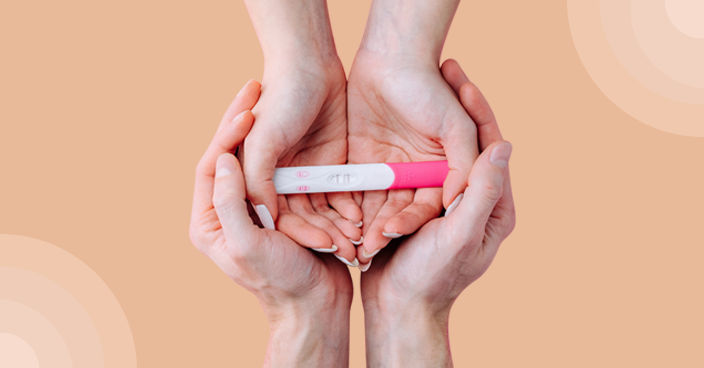



Preconception Guide: Health, Diet & Lifestyle Tips to Prepare for Pregnancy
Preconception Guide: Health, Diet & Lifestyle Tips to Prepare for Pregnancy
Preconception Guide: Health, Diet & Lifestyle Tips to Prepare for Pregnancy
Preconception Guide: Health, Diet & Lifestyle Tips to Prepare for Pregnancy
Preconception Guide: Health, Diet & Lifestyle Tips to Prepare for Pregnancy
Preconception Guide: Health, Diet & Lifestyle Tips to Prepare for Pregnancy
Preconception Guide: Health, Diet & Lifestyle Tips to Prepare for Pregnancy
Preconception Guide: Health, Diet & Lifestyle Tips to Prepare for Pregnancy
Preconception Guide: Health, Diet & Lifestyle Tips to Prepare for Pregnancy
Preconception Guide: Health, Diet & Lifestyle Tips to Prepare for Pregnancy
Preconception Guide: Health, Diet & Lifestyle Tips to Prepare for Pregnancy
Preconception Guide: Health, Diet & Lifestyle Tips to Prepare for Pregnancy
Preconception Guide: Health, Diet & Lifestyle Tips to Prepare for Pregnancy
Preconception Guide: Health, Diet & Lifestyle Tips to Prepare for Pregnancy
Preconception Guide: Health, Diet & Lifestyle Tips to Prepare for Pregnancy
Preconception Guide: Health, Diet & Lifestyle Tips to Prepare for Pregnancy
Preconception Guide: Health, Diet & Lifestyle Tips to Prepare for Pregnancy
Planning to get pregnant? Learn essential health checks, diet tips, and lifestyle changes for a smooth conception journey.
Preconception Guide: Health, Diet & Lifestyle Tips to Prepare for Pregnancy
Planning to get pregnant? Learn essential health checks, diet tips, and lifestyle changes for a smooth conception journey.
Preconception Guide: Health, Diet & Lifestyle Tips to Prepare for Pregnancy
Planning to get pregnant? Learn essential health checks, diet tips, and lifestyle changes for a smooth conception journey.
Preconception Guide: Health, Diet & Lifestyle Tips to Prepare for Pregnancy
Planning to get pregnant? Learn essential health checks, diet tips, and lifestyle changes for a smooth conception journey.
Preconception care ensures that your body is ready to support a healthy pregnancy. It prepares you physically and mentally and optimises your chances of conception.

Preconception care ensures that your body is ready to support a healthy pregnancy. It prepares you physically and mentally and optimises your chances of conception.

Preconception care ensures that your body is ready to support a healthy pregnancy. It prepares you physically and mentally and optimises your chances of conception.

Preconception care ensures that your body is ready to support a healthy pregnancy. It prepares you physically and mentally and optimises your chances of conception.

From health checks and nutrition to exercise and lifestyle adjustments, these essential steps help improve your chances of a healthy and successful pregnancy.

From health checks and nutrition to exercise and lifestyle adjustments, these essential steps help improve your chances of a healthy and successful pregnancy.

From health checks and nutrition to exercise and lifestyle adjustments, these essential steps help improve your chances of a healthy and successful pregnancy.

From health checks and nutrition to exercise and lifestyle adjustments, these essential steps help improve your chances of a healthy and successful pregnancy.

It's important to pay close attention to what you eat, as your diet plays a significant role in fertility.

Here are some common foods to avoid while trying to conceive:
It's important to pay close attention to what you eat, as your diet plays a significant role in fertility.

Here are some common foods to avoid while trying to conceive:
It's important to pay close attention to what you eat, as your diet plays a significant role in fertility.

Here are some common foods to avoid while trying to conceive:
It's important to pay close attention to what you eat, as your diet plays a significant role in fertility.

Here are some common foods to avoid while trying to conceive:
It’s equally important to focus on foods that boost fertility and support your health while trying to conceive

Here are some common foods to eat while trying to conceive:
It’s equally important to focus on foods that boost fertility and support your health while trying to conceive

Here are some common foods to eat while trying to conceive:
It’s equally important to focus on foods that boost fertility and support your health while trying to conceive

Here are some common foods to eat while trying to conceive:
It’s equally important to focus on foods that boost fertility and support your health while trying to conceive

Here are some common foods to eat while trying to conceive:
Proper nutrition and supplements are vital to improving fertility in couples. Always consult with your doctor before taking any supplements.

Proper nutrition and supplements are vital to improving fertility in couples. Always consult with your doctor before taking any supplements.

Proper nutrition and supplements are vital to improving fertility in couples. Always consult with your doctor before taking any supplements.

Proper nutrition and supplements are vital to improving fertility in couples. Always consult with your doctor before taking any supplements.

Before trying to conceive, it's important to have a thorough health check-up.

Early detection allows you to make informed decisions when planning for a child. So, make sure you get the following tests.
Before trying to conceive, it's important to have a thorough health check-up.

Early detection allows you to make informed decisions when planning for a child. So, make sure you get the following tests.
Before trying to conceive, it's important to have a thorough health check-up.

Early detection allows you to make informed decisions when planning for a child. So, make sure you get the following tests.
Before trying to conceive, it's important to have a thorough health check-up.

Early detection allows you to make informed decisions when planning for a child. So, make sure you get the following tests.
Preconception counselling is a crucial step to ensure that your body and mind are prepared for pregnancy.

A preconception consultation typically includes the following.
This type of counselling is designed to ensure that you’re in the best possible health before conception. It can also help reduce the anxiety that often comes with planning for a pregnancy.
Preconception counselling is a crucial step to ensure that your body and mind are prepared for pregnancy.

A preconception consultation typically includes the following.
This type of counselling is designed to ensure that you’re in the best possible health before conception. It can also help reduce the anxiety that often comes with planning for a pregnancy.
Preconception counselling is a crucial step to ensure that your body and mind are prepared for pregnancy.

A preconception consultation typically includes the following.
This type of counselling is designed to ensure that you’re in the best possible health before conception. It can also help reduce the anxiety that often comes with planning for a pregnancy.
Preconception counselling is a crucial step to ensure that your body and mind are prepared for pregnancy.

A preconception consultation typically includes the following.
This type of counselling is designed to ensure that you’re in the best possible health before conception. It can also help reduce the anxiety that often comes with planning for a pregnancy.
Discover trusted advice from experts for all stages of your parenting
Discover trusted advice from experts for all stages of your parenting
Discover trusted advice from experts for all stages of your parenting
Discover trusted advice from experts for all stages of your parenting
Stay on top of your health! Check out the recommended tests and scans you need before getting pregnant.
Stay on top of your health! Check out the recommended tests and scans you need before getting pregnant.
Stay on top of your health! Check out the recommended tests and scans you need before getting pregnant.
Stay on top of your health! Check out the recommended tests and scans you need before getting pregnant.
FAQs
The four goals of preconception care are improving maternal and child health, identifying and managing pre-existing conditions, promoting a healthy lifestyle, and providing education on reproductive health.
Preconception care helps reduce the risk of birth defects, manage chronic conditions, prepare physically and mentally for pregnancy, provide nutritional guidance, and identify genetic risks.
Preconception testing involves a series of blood tests and screenings to assess your overall health and detect any issues that could affect pregnancy.
Pre-planning for pregnancy involves taking steps like adjusting your diet, getting health check-ups, and addressing any medical concerns before trying to conceive.
Fertility can be improved by taking supplements like zinc and selenium for men, folic acid and vitamin D for women, and including fertility-boosting foods like eggs, walnuts, and avocados.
FAQs
The four goals of preconception care are improving maternal and child health, identifying and managing pre-existing conditions, promoting a healthy lifestyle, and providing education on reproductive health.
Preconception care helps reduce the risk of birth defects, manage chronic conditions, prepare physically and mentally for pregnancy, provide nutritional guidance, and identify genetic risks.
Preconception testing involves a series of blood tests and screenings to assess your overall health and detect any issues that could affect pregnancy.
Pre-planning for pregnancy involves taking steps like adjusting your diet, getting health check-ups, and addressing any medical concerns before trying to conceive.
Fertility can be improved by taking supplements like zinc and selenium for men, folic acid and vitamin D for women, and including fertility-boosting foods like eggs, walnuts, and avocados.
FAQs
The four goals of preconception care are improving maternal and child health, identifying and managing pre-existing conditions, promoting a healthy lifestyle, and providing education on reproductive health.
Preconception care helps reduce the risk of birth defects, manage chronic conditions, prepare physically and mentally for pregnancy, provide nutritional guidance, and identify genetic risks.
Preconception testing involves a series of blood tests and screenings to assess your overall health and detect any issues that could affect pregnancy.
Pre-planning for pregnancy involves taking steps like adjusting your diet, getting health check-ups, and addressing any medical concerns before trying to conceive.
Fertility can be improved by taking supplements like zinc and selenium for men, folic acid and vitamin D for women, and including fertility-boosting foods like eggs, walnuts, and avocados.
FAQs
The four goals of preconception care are improving maternal and child health, identifying and managing pre-existing conditions, promoting a healthy lifestyle, and providing education on reproductive health.
Preconception care helps reduce the risk of birth defects, manage chronic conditions, prepare physically and mentally for pregnancy, provide nutritional guidance, and identify genetic risks.
Preconception testing involves a series of blood tests and screenings to assess your overall health and detect any issues that could affect pregnancy.
Pre-planning for pregnancy involves taking steps like adjusting your diet, getting health check-ups, and addressing any medical concerns before trying to conceive.
Fertility can be improved by taking supplements like zinc and selenium for men, folic acid and vitamin D for women, and including fertility-boosting foods like eggs, walnuts, and avocados.